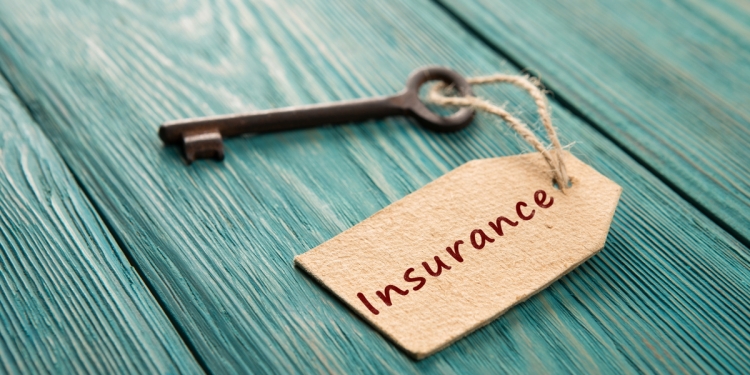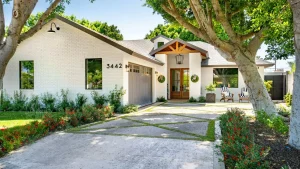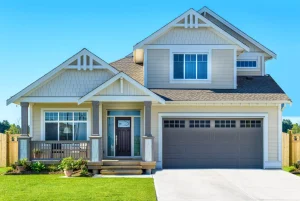Home insurance, which is also called “homeowners insurance,” protects homeowners financially in case their property is damaged, lost, or destroyed. It protects both the house itself and the things that are inside it. If you want to protect your investment from unplanned risks, whether you just bought a house or have had it for years, you need to know about home insurance.
Why it’s important to have home insurance
A lot of people will ever make the biggest financial commitment: buying a home. Home insurance protects that investment. You could lose a lot of money if something bad happens, like a fire, storm, or theft, without it. Home insurance not only pays for repairs or rebuilding, but it also protects your belongings and may even cover your legal costs if someone gets hurt on your property.
Coverages for Different Types of Homes
Most home insurance policies cover a number of different things. First, there’s dwelling coverage, which protects your home’s walls, roof, and built-in appliances. Your furniture, electronics, clothes, and other things in your home are protected by personal property coverage. Liability coverage is also included to protect you financially if someone gets hurt on your property and sues you. Lastly, additional living expenses (ALE) coverage helps pay for temporary housing if an insured event makes your home unlivable.
What does most home insurance cover?
Damage to your home from things like fire, lightning, windstorms, hail, explosions, and theft is usually covered by your home insurance. It’s likely that your policy will help pay for repairs or the rebuilding of your home if one of these things happens and damages it. Your home’s personal property is covered by your policy. If your things are stolen or damaged by a covered peril, the policy can help pay to get new ones. In some cases, your policy may also cover things like bikes or electronics that get broken outside of your home.
Things that home insurance doesn’t cover
There are many things that home insurance doesn’t cover, so it’s important to know what it does. Damage from natural disasters like earthquakes and floods is usually not covered by insurance. If you live in an area that is prone to these risks, you may need to buy extra coverage. Wear and tear from everyday use and damage from bugs like termites are not covered either. Being aware of these exceptions will help you avoid being surprised by repairs that aren’t covered by your normal policy.
How much do you need for home insurance?
How much home insurance you need will depend on how much your home is worth, how much stuff you own, and your current financial situation. The most important thing is to make sure you have enough insurance to rebuild your home if it gets destroyed. A lot of experts say that you should have insurance that covers at least 80% to 100% of your home’s replacement value. You can also figure out how much personal property coverage you need by making a list of your belongings and estimating how much they are worth all together. A lot of people say that you should have at least $300,000 in liability coverage to protect your assets in case of a lawsuit.
Things that affect how much home insurance costs
The cost of home insurance is affected by several things, and knowing these can help you make smart choices. The place where your home is located is very important. Homes in areas that are prone to natural disasters or have high crime rates may have higher premiums. The cost is also affected by how old and in good shape your home is. Homes that need a lot of repairs or are older tend to cost more to insure. Your premium will also be affected by the amount of coverage you pick, which includes extras like flood or earthquake insurance that you don’t have to buy. The rate you’re given can also be changed by things about you, like your credit score and history of claims.
How to Pick the Best Home Insurance Plan
It’s important to think about your needs and budget when picking out a home insurance policy. First, get quotes from several insurance companies and compare them to find the one that gives you the best coverage at the best price. Look for a policy that covers your home, your belongings, your liability, and extra living costs. If you live in an area that is prone to natural disasters that aren’t covered by standard insurance, you might want to buy extra policies that cover those risks. When you’re thinking about a policy, make sure you read the fine print and pay close attention to what it doesn’t cover and what it does limit.
How to Make a Claim on Your Home Insurance
It is important to know the steps you need to take if you ever need to file a home insurance claim. To begin, take pictures or videos of the damage and make a list of all the things that were lost or had damage. As soon as possible, call your insurance company to report the accident and begin the claims process. Usually, an adjuster will be sent to your house to look at the damage and give you an idea of how much it will cost to fix. As soon as the claim is approved, you’ll get money to pay for the repairs or replacements of your things, less your deductible.
How to Understand Home Insurance Deductibles
It’s the amount of money you have to pay out of pocket before your insurance starts to pay. If you file a claim for $10,000 in damage, for example, and your deductible is $1,000, your insurance will pay $9,000, leaving you to pay the last $1,000. If you choose a higher deductible, your monthly premium will be less, but if you need to file a claim, you will have to pay more out of your own pocket. On the other hand, a lower deductible might mean a higher premium but less money out of pocket if you need to make a claim. When choosing a deductible, you should think about your budget and how much risk you are willing to take.
Is having home insurance required by law?
Home insurance is not required by law in most places, but auto insurance is. If you have a mortgage, on the other hand, your lender will almost certainly make you get home insurance as part of the loan agreement. You don’t have to have insurance if you own your home outright, but it’s still a good idea to protect your investment with a homeowners policy. Not having insurance could cost you a lot of money in the event of a disaster, so getting home insurance is a good idea for everyone who owns a home.
Conclusion
The bottom line is that home insurance is an important safety measure that protects one of your biggest investments—your home. Peace of mind is given by covering unplanned events like fires, theft, and some natural disasters. It also protects your belongings and your personal liability. You can make the best decisions for your home and family if you know everything there is to know about home insurance, from the different types of coverage to deductibles and what is not covered. You can rest easy knowing your home is safe if you have the right policy in place.



